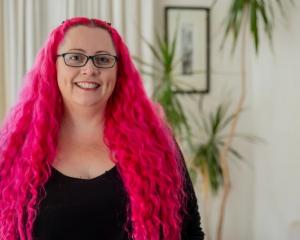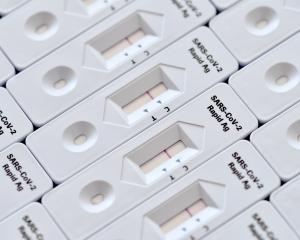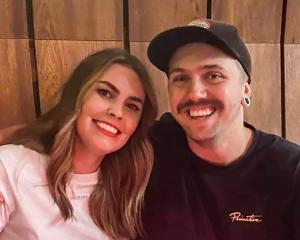
Last month, the Oamaru police officer put his hand up to go to Wellington to join his colleagues at the cordon around the anti-mandate protest on Parliament’s lawn.
With previous experience in team policing and policing protests, Sgt Woodbridge was drafted into one of the Canterbury units and on March 2 was on the front line, with a riot shield and helmet, when police moved to shut down the 23-day protest.
Two days later, Sgt Woodbridge tested positive for Covid-19.
He finally returned home this week, after spending seven days in managed isolation in Wellington.
March 2 was a big day for police. Sgt Woodbridge was at the police base at 4.30am, before loudspeaker messages started playing, telling people Parliament grounds were closed and if they did not leave they would be trespassed and any obstruction of police staff executing their duties might result in arrest.
Police started towing vehicles parked within the protest area, and tensions started to flare as officers moved in on the protest, to restore order and access to the area.
"It changed very dramatically.
"They were told to leave — they didn’t leave. They were protesting illegally and it was pretty gutting that it turned ugly like it did," Sgt Woodbridge said.
Sgt Woodbridge, who has policed protests across the country, said he had never been involved in anything on that scale before — officers had bricks, bottles, paint and other liquids thrown at them, tents were set on fire and a car was driven at the police line.
Meanwhile, health experts were warning it could be a Covid-19 super-spreader event.
Sgt Woodbridge said he spoke to a lot of protesters, recognising some from Oamaru, and many of the interactions were positive.
"It was that fringe element that kept coming back at us and throwing missiles and abusing staff."
Sgt Woodbridge finished work about 11pm that day. Physically and emotionally, it was a "hugely draining" shift, he said.
It was also tough on the spouses and families of police officers, who watched it all unfold in the media, not knowing whether their loved ones were among the officers who were injured.
"I’ve got family at home — I’ve got a partner who supports me hugely through all this stuff — and it’s a worry for those partners, those husbands, those wives, at home when we’re up here," he said.
"That’s tough on the families of police officers — but it wasn’t just police officers. There were firemen there who had things thrown at them as they’re trying to put out these fires. We had Maori wardens who were supporting us who got abused.
"It’s part of the job, part of what we get paid for, but our families worry about us."
Sgt Woodbridge said he was "very impressed" by the police management of the protest. He was "proud to be a cop" and proud to restore the area for the people of Wellington.
The following day, when the grounds were clear, he spoke to several nearby residents, and people who worked in the area, who were grateful to "have their city back".
He also accompanied Prime Minister Jacinda Ardern around the grounds as she inspected the damage and spoke to police who were on the front line.
When Sgt Woodbridge tested positive for Covid-19 two days after the protest, he was transferred to a managed isolation facility in Wellington.
"It was always a risk going up there ... It was a spreader event, that protest," he said.
He was "pretty crook" for a couple of days, but after spending a week in isolation to recover, he was now "fighting fit and raring to go".
"I was lucky I didn’t get it as bad as a lot of other people have."













